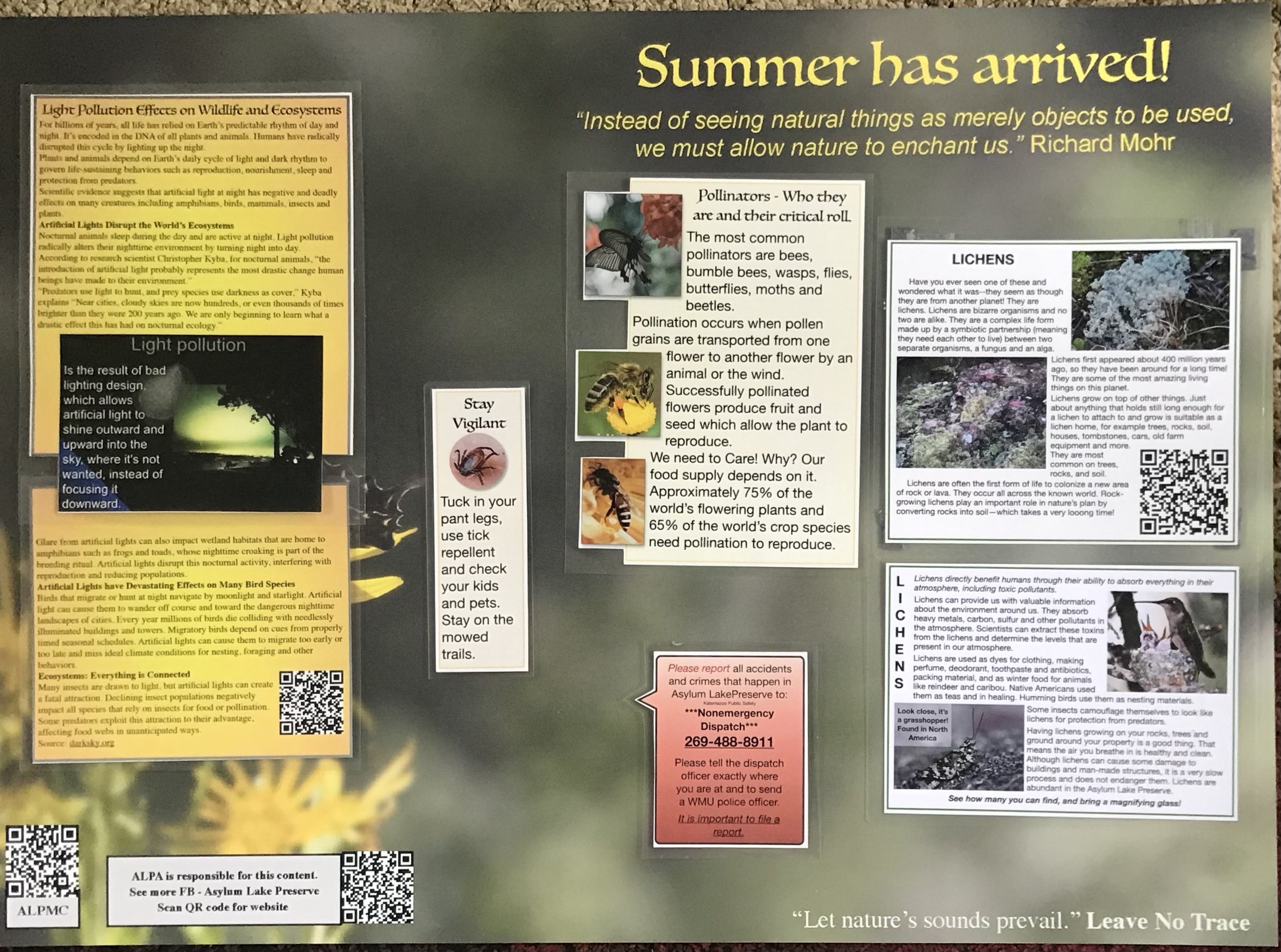Natural Features of the
Asylum Lake Preserve
DID YOU KNOW?
At Asylum Lake Preserve there are 455 plant species, 117 bird species, 6 varieties of frogs, 6 kinds of turtles, and an indefinite number of snakes, and of course, many white-tailed deer. Asylum Lake Preserve is composed of mature oak-hickory forests, sedge meadows, old fields, and prairie/savanna.
Photo by William Dolak
northern bedstraw
alum root
showy goldenrod
common reed
narrow-leaved cattail
reed canary grass
bog buckbean
marsh St.-John’s wort
many native sedges and grasses
native prairie grass big bluestem
Canada goldenrod
quackgrass
Flora of Asylum Lake preserve
wild black cherry
white and black oak
red oak
pignut hickory
gray dogwood
glossy and common buckthorn (invasive)
bush honeysuckle (invasive)
Virginia creeper
garlic mustard
Culver’s root
Tussock sedge (Carex stricta)
spotted touch-me-not (Impatiens
capensis)
purple loosestrife (Lythrum salicaria)
sensitive fern (Onoclea sensibilis)
marsh fern (Thelypteris palustris)
smooth swamp aster (Aster firmus)
calico aster (Aster lateriflorus)
false nettle (Boehmeria cylindrica)
clearweed (Pilea fontana and
P. pumila)
red clover
Photo by Matt Clysdale
green frog
bull frog
tree frog
wood frog
chorus frog
spring peeper
map turtle
snapping turtle
Eastern box turtle
painted turtle
spiny softshell turtle
Blanding’s turtle
Fauna of Asylum Lake Preserve
Canada Goose
Blue Jay
American Crow
American Robin
Gray Catbird
Yellow Warbler
Common Yellowthroat
Savanna Sparrow
Song Sparrow
Northern Cardinal
Rose-breasted Grosbeak
Red-winged Blackbird
Brown-headed Cowbird
Baltimore Oriole
American Goldfinch
Fox squirrel
eastern chipmunk
muskrat
ground hog
Northern water snake
garter snake
black rat snake
Diversity Through the Seasons
Look for these info displays at the entrances on Parkview and Winchell.
Look for these info displays at the entrances on Parkview and Winchell.
Look for these displays at the entrances of Parkview and Winchell.
Summer 2024
Summer 22
Look for these displays at the entrances on Parkview and Winchell
Winter 22-23
Early Winter’s Barred Owl
Early Winter’s Coopers Hawk
Early Winter Chickadee
WMU maintains a detailed story map of the Asylum Lake Preserve. The story map lays out the geographical history of the usage of the preserve over time and provides visuals to guide you through the locations of historical markers within the park and their significance.
Invasive species
Bush honeysuckle, glossy and common buckthorn, multiflora rose, garlic mustard, cattails, and common reed were identified as the most problematic invaders.
ALPA encourages you to not to purchase or plant these or any other invasive species and remove any that are currently in your own yard.













